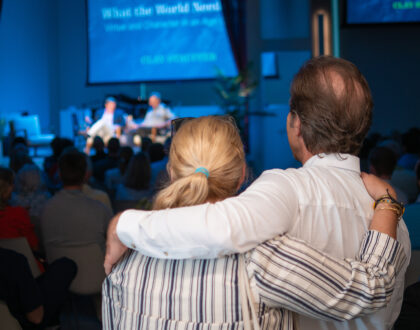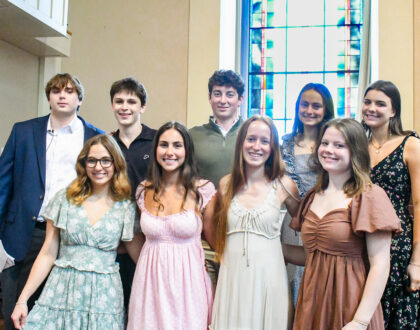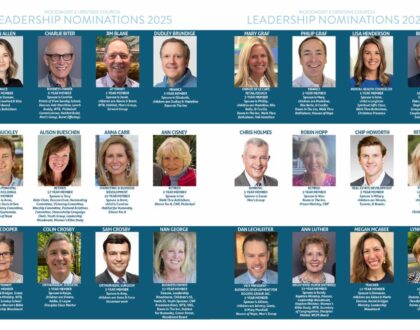Update from Sabbatical

During the first part of my sabbatical, I have been able to rest, reflect, renew, plan, and spend meaningful time with family. We are now in the Outer Banks with Megan’s family. I miss seeing everybody and have enjoyed tuning into to worship online.
It occurs to me that one of the great ironies of ministry is that all the important things pastors are called to do – preach, teach, counsel, write, administrate, lead a staff, do weddings, funerals, navigate a pandemic – do not always lead to a spiritually balanced place. Exhaustion is real. Ministry is hard work. Those who are not called to it, will not last.
We live in a culture that rewards busyness, multi-tasking, production, accomplishment, and getting things done. Many times, when we ask somebody how they are doing, we hear a common refrain – “I’m so busy, running around like crazy.” Is this a good thing? Busyness is not compatible with spiritual growth and deeper reflection.
In American culture, we laud achievement and accomplishment while frowning upon laziness and complacency. Most people who achieve success tend to have a hard work ethic and a proactive personality that takes initiative. In life, certain people make things happen while others watch things happen.
Presbyterian pastor and author Eugene Peterson articulates it this way in his memoir: “The cultural conditions in which I am immersed require a kind of fierce vigilance to guard my vocation from these cultural pollutants so dangerously toxic to persons who want to follow Jesus in the way that he is Jesus. I wanted my life, both my personal and working life, to be shaped by God and the scripture and prayer.”
George Buttrick taught at both Harvard and Vanderbilt Divinity Schools and was the pastor of Madison Avenue Presbyterian Church in New York City. Buttrick intentionally reserved his mornings for study, prayer, and sermon preparation. He would only take meetings and appointments in the afternoon. He maintained this schedule over the course of many decades. He knew the importance of setting boundaries.
Many in our culture will say they want to grow spiritually and in their faith, but if their weekly or daily schedule is closely analyzed, no time is reserved for this to happen. One activity leads to another and then to another. Some have a hard time saying no because they are people pleasers. Americans are busy people, but what are we busy doing?
Leadership expert Ron Heifetz talks about the importance of “sanctuary,” which he describes as “the mental or physical haven to which one can intentionally retreat to create space for reflection and renewal.” Sanctuary allows us to take a step back from our specific context to do self-care and to assess our own physical, mental, and spiritual state. Unfortunately, many in our culture do not have a place or method of finding sanctuary. Alcohol, drugs, shopping, and social media conveniently substitute as familiar methods of coping with the stress of a busy life. This is not the same as taking time to grow and mature. Intentional time must be set aside for prayer, stillness, study, and reflection.
When the pandemic first began in the spring of 2020, calendars were quickly cleared. I heard many people say how much they appreciated the slower pace of life. However, it didn’t last. Slowly but surely schedules filled up and we returned to our old ways. Busyness is what we know and often what we do. Meanwhile, our spiritual lives are neglected. Guarding time to be still and quiet on a daily basis is healthy and will enable us to live meaningful and more balanced lives.
Recommended Posts

Healing, Growth, & Renewal Over Time
May 30, 2025

Values for Our Graduates
May 20, 2025

Leading in the Church
May 16, 2025

